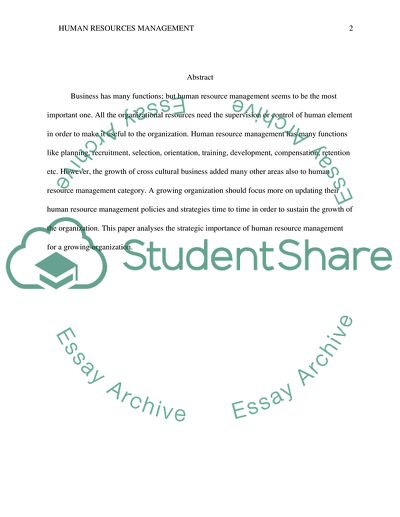Cite this document
(The Strategic Importance of Human Resources Management in an Research Paper - 1, n.d.)
The Strategic Importance of Human Resources Management in an Research Paper - 1. Retrieved from https://studentshare.org/human-resources/1751540-the-strategic-importance-of-human-resources-management-in-an-organization
The Strategic Importance of Human Resources Management in an Research Paper - 1. Retrieved from https://studentshare.org/human-resources/1751540-the-strategic-importance-of-human-resources-management-in-an-organization
(The Strategic Importance of Human Resources Management in an Research Paper - 1)
The Strategic Importance of Human Resources Management in an Research Paper - 1. https://studentshare.org/human-resources/1751540-the-strategic-importance-of-human-resources-management-in-an-organization.
The Strategic Importance of Human Resources Management in an Research Paper - 1. https://studentshare.org/human-resources/1751540-the-strategic-importance-of-human-resources-management-in-an-organization.
“The Strategic Importance of Human Resources Management in an Research Paper - 1”, n.d. https://studentshare.org/human-resources/1751540-the-strategic-importance-of-human-resources-management-in-an-organization.


